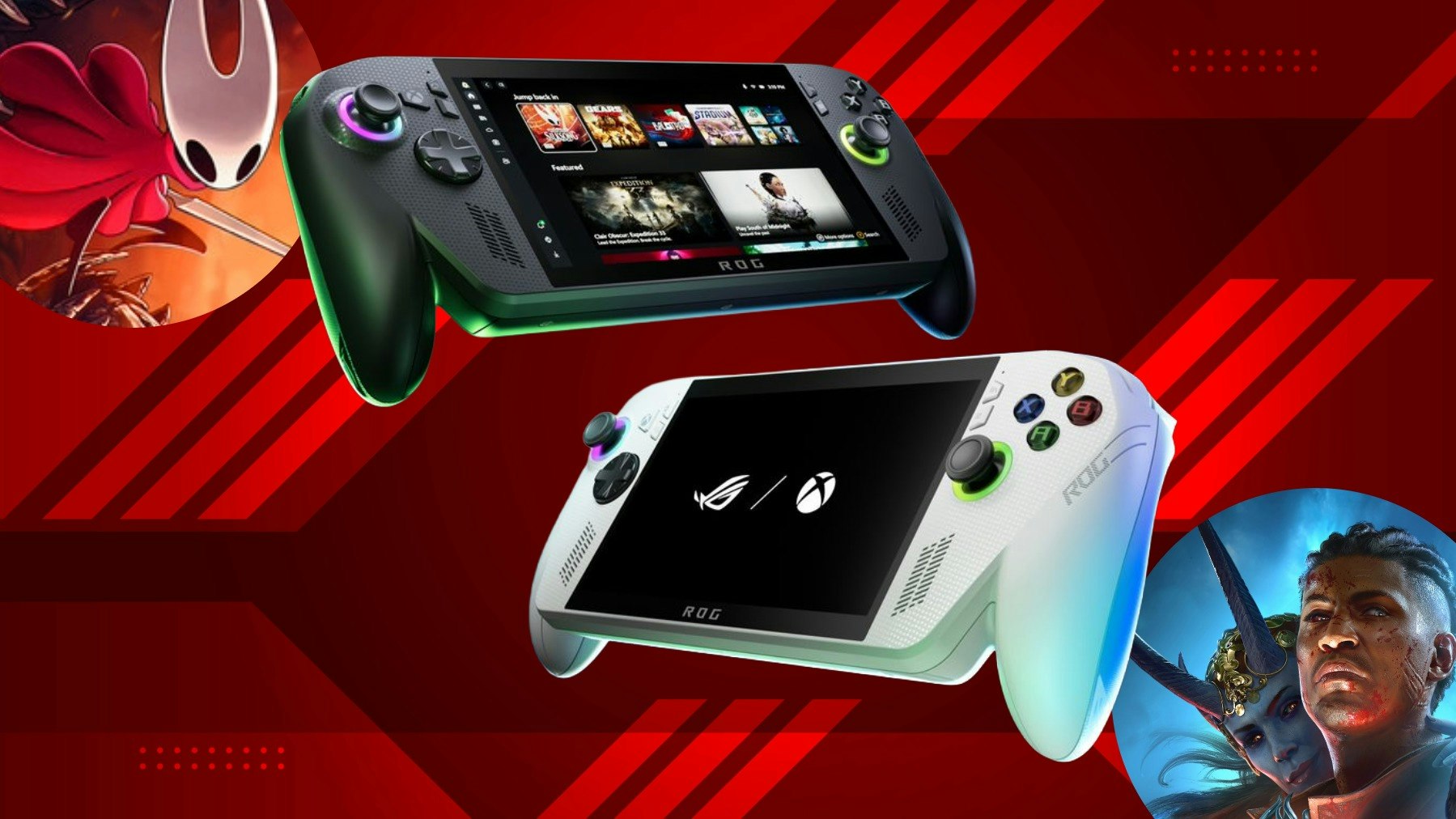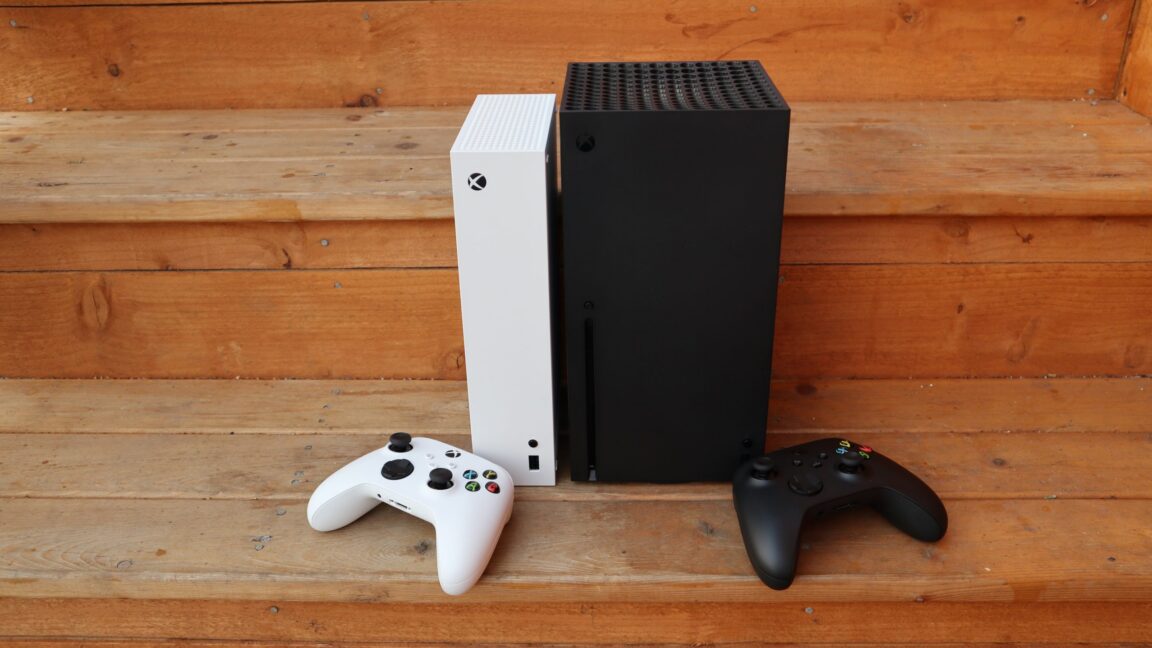The ROG Xbox Ally: Revolutionizing Portable Gaming

Introduction
The highly anticipated ROG Xbox Ally is set to launch next month and gamers are eagerly awaiting its arrival. This new handheld console, a collaboration between Microsoft and ASUS, promises to revolutionize the gaming experience.
Key Details
The ROG Xbox Ally boasts impressive specs, with a high-performance processor and stunning graphics. It also features a versatile detachable controller, allowing for both handheld and traditional console gameplay. Pre-orders are now live, and stock updates are being closely monitored by avid gamers.
One exciting feature of the ROG Xbox Ally is its compatibility with Xbox Game Pass, providing access to a vast library of games. Additionally, the console offers cross-play with Xbox One and PC, allowing for seamless multiplayer experiences.
Impact
The ROG Xbox Ally is not just a new console, but a game-changer in the gaming industry. Its innovative design and powerful capabilities make it a must-have for any avid gamer. The collaboration between Microsoft and ASUS has brought together the best of both worlds, creating a handheld console that sets a new standard for portable gaming.
About the Organizations Mentioned
Microsoft
Microsoft is a global technology leader that develops, licenses, and supports a broad range of software, services, devices, and solutions. Founded in 1975 by Bill Gates and Paul Allen, Microsoft initially gained prominence through its MS-DOS operating system and later Windows, which became the dominant PC operating system worldwide. Over time, the company expanded into cloud computing, productivity software, gaming, and AI, evolving from a software vendor into a comprehensive technology ecosystem[2][4]. Today, Microsoft’s core business revolves around its cloud platform, Azure, which supports enterprise digital transformation and AI innovation. In fiscal year 2025, Microsoft reported a strong financial performance with revenue reaching $76.4 billion, an 18% increase year-over-year, driven largely by a 27% growth in Microsoft Cloud revenue to $46.7 billion. Operating income rose 23%, and net income increased 24%, underscoring robust profitability. The company’s strategic focus on cloud and AI is central to its growth, with Azure surpassing $75 billion in revenue, reflecting broad adoption across industries[3][5]. Microsoft also leads in cybersecurity solutions, with Microsoft Sentinel recognized as a leader in Gartner’s 2025 Magic Quadrant for Security Information and Event Management (SIEM). This AI-powered cloud service enhances threat detection and response, reflecting Microsoft’s commitment to innovation in security and hybrid cloud environments[6]. The company employs over 220,000 people worldwide and continues to drive digital transformation both internally and for its customers. Its vision embraces the integration of AI and human intelligence, pioneering the “Frontier Firm” model—organizations that blend AI agents with human judgment to scale rapidly and innovate continuously[1][4]. With a diversified portfolio including Office 365, LinkedIn, Xbox, and Surface devices, Microsoft remains a dominant force in technology, shaping the future of work, security, and AI-enabled business transformation[2][3][6].
ASUS
ASUS, founded in 1989 in Taipei by four former Acer hardware engineers, is a leading multinational company specializing in computer hardware and consumer electronics[1][3][7]. Named after Pegasus, the mythical winged horse symbolizing wisdom and knowledge, ASUS began as a small design firm focused on motherboards, quickly gaining recognition for innovation and quality[2][5]. The company’s early breakthrough came when its motherboard design impressed Intel, allowing ASUS to receive engineering samples ahead of competitors, establishing it as a global leader in motherboard manufacturing[2][3]. Over the years, ASUS expanded its product portfolio to include personal computers, monitors, graphics cards, routers, and more, evolving into a top brand in gaming hardware and consumer notebooks[1][6]. Notable milestones include the launch of the Eee PC netbook in 2007, the first PhysX accelerator card in 2005, and pioneering dual-purpose mobile devices like the TAICHI Ultrabook with a double-sided display and the Transformer Book series[3][5]. ASUS’s innovation-driven approach garnered it thousands of international awards—4,385 by 2016—and inclusion in Fortune’s World's Most Admired Companies[1][5]. Today, ASUS is headquartered in Taipei with over 15,000 employees worldwide and reported group revenues exceeding $19 billion in 2021[6]. It stands out as a rare Taiwanese brand that successfully transitioned from manufacturing for others to building a globally recognized name known for high-performance gaming phones, laptops, and cutting-edge smart technologies designed to enhance user experiences[4][6]. ASUS continues to be a major player in the information technology sector, combining strong R&D capabilities with a visionary product strategy that embraces cloud computing and mobility, maintaining its reputation for quality, innovation, and design excellence[1][5].















